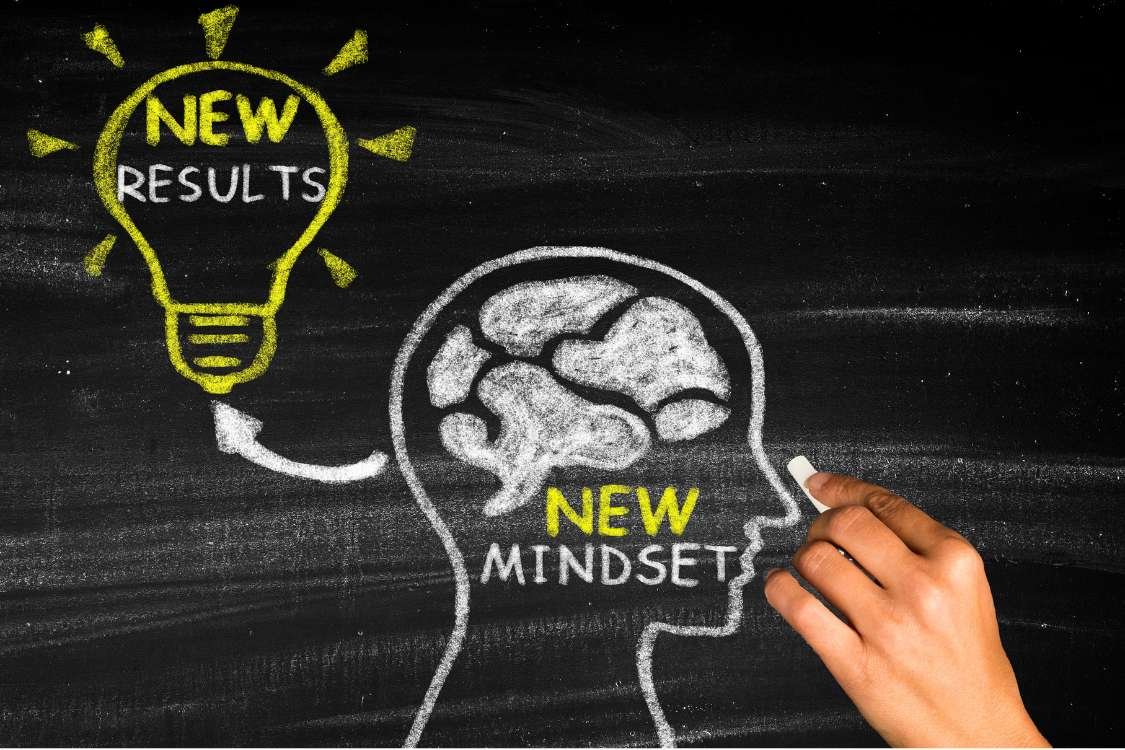Making big decisions with a bias to action
A few weeks ago I wrote a piece about five mindset changes that I’d learned about in ‘Design your Life’ by Bill Burnett and Dave Evans. I described one of these mindsets as “try stuff”, but the term they use for it is having a "bias to action”. For me it’s been such a game changer in my life that I thought it worth exploring a bit more deeply.
What is a “bias to action”? What does it look like when making long term decisions? And how can I start to make it a part of my mindset?
What is a “bias to action”?
Well, in a nutshell, it's the opposite of procrastination. Instead of putting off tasks until tomorrow (or whenever!), we simply do them now.
But why do we procrastinate? Why is it sometimes so hard just to get up and do something?
Well, there are a few reasons; all of them a part of being human.
Perhaps we feel unprepared? Maybe we don’t feel we have all the information or skills to do the task. We fear failure, and so we tell ourselves that we need more thinking time, or more information.
Perhaps we just feel overwhelmed? There are simply too many competing important tasks to do, our brains feel scrambled, and so we end up doing none of them.
Perhaps you just don’t have the motivation, and just want to do something else instead? Humans aren’t particularly good at delaying gratification. We might know that the homework will ultimately lead to a better long term life than playing the latest game. But right here, right now, the game is more fun.
I used to be one of the world's great procrastinators. When I worked in universities I managed to convince myself that this was actually a good thing. Universities operate in a very slow moving environment, and so it's far more important (so I thought), to be slow, steady and thoughtful rather than rush into things. It was only when I started working in a super-fast-paced tech startup that I learned that slow and steady doesn’t always win. It turns out that fast and steady is way better!
And it's not just me, and the experts behind Design Thinking who believe in a bias to action. There are versions of it everywhere:
The Nike slogan: “Just do it”
Amazon has it as one of their key leadership principles: “Speed matters in business. Many decisions and actions are reversible and do not need extensive study. We value calculated risk taking.”
German poet-philosopher Goethe talked about it as long ago as the 18th century: “The dangers of life are infinite, and safety is among them”.
And even the little green space-dwelling philosopher Yoda gets in on the action: “Do or do not; there is no try”.
They are all essentially saying the same thing: take action, even if it takes you a little out of your comfort zone.
What does this mean when making the big decisions about your future?
Taking the next steps in your education after school; choosing a career area; choosing a university course. These are some of the biggest decisions that any of us take, and I’m not suggesting they are decisions to be taken lightly. But having a bias to action will make us look differently at how we make these decisions.
Feeling unprepared?
So, perhaps you really don't know what you want to study. Essentially you feel unprepared, with a lack of knowledge about what to do next.
In this case a bias to action does NOT mean you simply apply for any old course and head off to study it. Instead it means taking action to discover what might be interesting options for you.
Think you might be interested in law, but are not sure? Don’t sit around thinking about it or reading prospectuses and university websites. Instead actually try studying it, through a course on Springpod (or another online learning platform).
Not sure whether a particular university is for you? Well, you could just chat it through with your friends, but a more action-oriented approach would be to actually go and visit for yourself.
The important thing in this case is not so much what action you take, but simply that you take some action, and the more concrete the action, the better.
Feeling overwhelmed?
Perhaps you are finding the whole application process confusing or overwhelming.
Again, this is normal, as there is a lot to take in. But just remember, you don’t need to have everything perfect from the start. Applicants don’t start the process knowing exactly what they want to do and where they want to do it. Instead, the choices and certainties emerge as they go through the process.
So just take the process one step at a time. Wherever you are in the process, the only thing you really need to be concerned about is what is the NEXT action you need to take. Don’t concern yourself with knowing every step in advance, just take action on the first step.
Feeling unmotivated?
Perhaps you just can’t find the motivation to make those choices and do your UCAS application simply because you’d rather be doing something else.
I cannot tell you how much I empathise with that. It doesn’t matter how much I, or your parents tell you how important your university application is, the reality is that there is something right now that you’d rather be doing.
What can you do about it?
In any of these cases, there are a couple of simple tricks that you can play on yourself.
Build a reward system
Firstly, make a deal with yourself, by putting in place a simple reward system. Tell yourself that if you get X done, you get to do Y.
I do it all the time. Right now if I write a new piece for BetterUniChoices, I get to watch the next Marvel movie.
You just need to work out what reward works for you!
The 10 minute commitment
The second trick is to accept that you don’t need to make loads of progress every time. If you are finding it hard to get started on something, just make a deal with yourself that you’ll spend 10 minutes doing it.
Not an hour, and certainly not two hours. Just 10 minutes.
Sometimes that 10 minutes will be all you do, but other times 10 minutes will be all it takes to suck you right into the activity.
I literally used this trick on myself an hour ago when I started writing this piece. I didn’t feel much like writing, so I told myself I’d spend 10 minutes writing an outline that I’d complete later. Here we are, 50 minutes later, and the article is nearly complete.
And how can you make this a part of your mindset?
Honestly, you’ll be surprised how quickly a bias to action becomes a habit. I’ve watched so many successful people in my life who just always seem to have more time to get things done than others do. And in most cases it's simply that they have a bias to action; they don’t procrastinate and they don’t overthink.
Recently I’ve made it a bit of a mantra for my own life. Whenever I’m not sure what to do. Whenever I feel overwhelmed with options. Whenever I find myself over-thinking something. Whenever I just feel like doing nothing. I just say to myself: “Remember your bias to action: stop thinking, and just do it”.
And I don’t just apply it to work or the more tedious aspects of life, I apply it to fun things too, like booking holidays and social events. Sure, I’m not perfect, I can still doom-scroll with the best of them, but I don’t beat myself up about it, because there is always an action I can take to get myself out of it!
So, what are you currently procrastinating about? Is there something in your life that you know is important, but you just can’t seem to get started on? If so, take some inspiration from Nike, Amazon, Goethe or Yoda and just get started today.
Whatever it is, take the first step. You’ll be amazed how much better you feel, and how quickly it becomes a habit.






